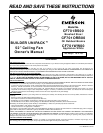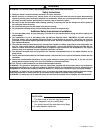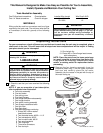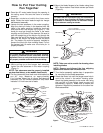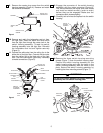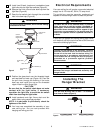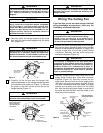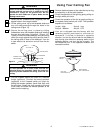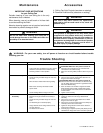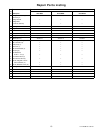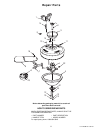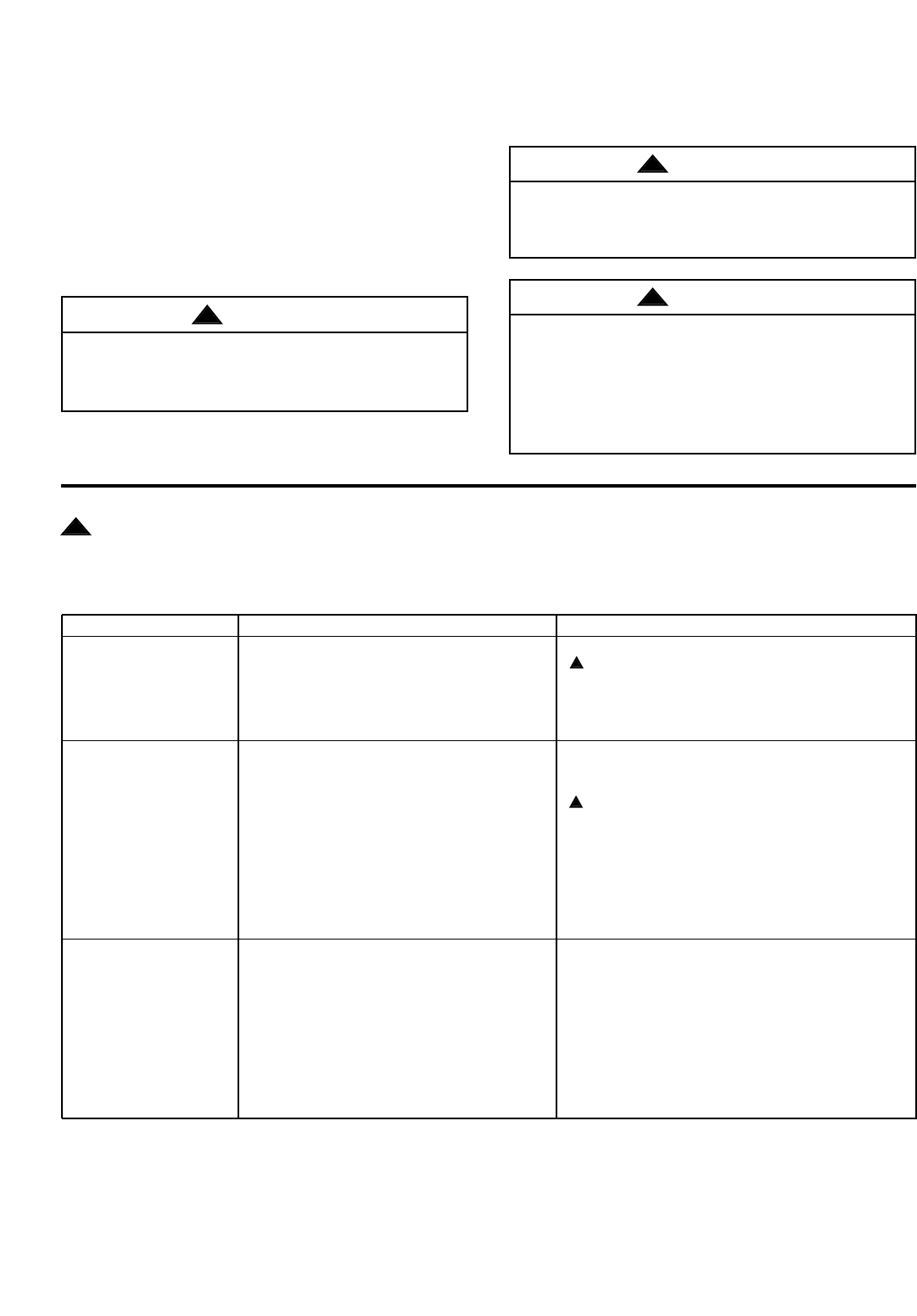
9
IMPORTANT CARE INSTRUCTIONS
for your Ceiling Fan
Periodic cleaning of your new ceiling fan is the only
maintenance that is needed.
When cleaning, use only a soft brush or lint free cloth
to avoid scratching the finish.
Abrasive cleaning agents are not required and should
be avoided to prevent damage to finish.
Maintenance Accessories
Do not use water when cleaning your ceiling fan. It
could damage the motor or the blades and create the
possibility of an electrical shock.
This product is designed to use only those parts
supplied with this product and/or any accessories
designated specifically for use with this product by
Emerson Electric Company. Substitution of parts or
accessories not designated for use with this product
by Emerson Electric Company could result in
personal injury or property damage.
The use of any other control not specifically
approved for this fan could result in fire, shock and
personal injury.
1. Ceiling Fan/Light Controls (see store or catalog).
2. Downrod Extension Kits (see store or catalog).
WARNING
!
WARNING
!
WARNING
!
U.L. Model No.: CF701
Trouble Shooting
TROUBLE PROBABLE CAUSE SUGGESTED REMEDY
1. Fan will not start. 1. Fuse or circuit breaker blown. 1. Check main and branch circuit fuses or circuit breakers.
WARNING: Make sure main power is turned off.
2. Loose power line connections to the fan, or loose 2. Check line wire connections to fan and switch wire
switch wire connections in the switch housing. connections in the switch housing.
3. Reversing switch in neutral position. 3. Make sure reversing switch position is all the way to one
side.
2. Fan sounds noisy. 1. Blades not attached to fan. 1. Attach blades to fan before operating.
2. Screws securing fan blade flanges to motor hub 2. Check to make sure the screws which attach the fan
are loose. flanges to the motor hub are tight.
WARNING: Make sure main power is turned off.
3. Wire connectors inside switch housing rattling. 3. Check to make sure wire connectors in switch housing
are not rattling against each other or against the interior
wall of the switch housing.
4. Motor noise caused by solid-state variable 4. Some fan motors are sensitive to signals from Solid-
speed control. State variable speed controls. If Solid-State Control
is used and motor noise results choose an alternative
control method.
5. Screws holding blades to flanges are loose. 5. Tighten screws securely.
3. Fan wobbles 1. Setscrews in motor coupling are loose. 1. Tighten both setscrews securely in the motor coupling.
excessively. 2. Setscrew in hanger ball/downrod assembly is 2. Tighten the setscrew in the hanger ball/downrod
loose. assembly.
3. Screws securing fan blade flanges to motor are 3. Check to be sure screws which attach the fan blade
loose. flanges to the motor are tight.
4. Fan blade flanges not seated properly. 4. Check to be sure the fan blade flanges seat firmly and
uniformly to the surface of the motor.
5. Hanger bracket and/or ceiling outlet box is not 5. Tighten the hanger bracket screws to the outlet box,
securely fastened. and/or secure outlet box.
6. Fan blades out of balance. 6. Interchanging an adjacent (side-by-side) blade pair can
redistribute the weight and result in smoother operation.
WARNING: For your own safety, turn off power at fuse box or circuit breaker before trouble
shooting your fan.
!
!
!



